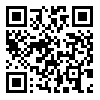مجله رویش روانشناسی از دادن گواهیهای کاغذی معذور است. لطفا تقاضا نکنید. همه گواهی ها در صفحه شخصی کاربران موجود است.
year 12, Issue 8 (autumn 2023 2023)
Rooyesh 2023, 12(8): 161-170 |
Back to browse issues page
Download citation:
BibTeX | RIS | EndNote | Medlars | ProCite | Reference Manager | RefWorks
Send citation to:



BibTeX | RIS | EndNote | Medlars | ProCite | Reference Manager | RefWorks
Send citation to:
Abedi Andani Z, Haji Heydari M. (2023). The Relationship between Personality Differences and Marital Intimacy with the Mediating Role of Emotional Literacy in Khomeini Shahr Couples. Rooyesh. 12(8), 161-170.
URL: http://frooyesh.ir/article-1-4506-en.html
URL: http://frooyesh.ir/article-1-4506-en.html
1- Department of Psychology, Faizul Islam Institute of Higher Education, Khomeinishahr, Iran.
2- Assistant professor, Department of counseling, Feizoleslam Non-profit Higher Education Institute, Khomeinishahr, Isfahan, Iran. ,M.hajiheidari@fei.ac.ir
2- Assistant professor, Department of counseling, Feizoleslam Non-profit Higher Education Institute, Khomeinishahr, Isfahan, Iran. ,
Abstract: (1678 Views)
The present study was conducted to investigate the relationship between personality differences and marital intimacy with the mediating role of emotional literacy in couples of Khomeini Shahr city. The method of this research was descriptive-analytical. The statistical population included all cohabiting couples in Khomeini Shahr city in 2022-2023, from which 220 people were selected according to the minimum statistical sample size for structural equations. The data collection tool was the Bagarozi Marital Intimacy Standard Questionnaires (MINQ, 2001); The personality differences were Myers-Briggs (MBTI, 1970) and alchemical emotional literacy (EL, 2011). The structural equation model (SEM) test was used to measure the fit of the model. The results obtained from the research model test showed that extroversion personality types; intuitive; sensory Emotional; intellectual Observer and judge have a significant effect on marital intimacy and emotional literacy (P<0.01). Also, the mediating role of emotional literacy through extroversion, introversion, emotionality, referent, and judgment was confirmed in marital intimacy (P < 0.05). The results showed that the research model is confirmed in terms of meaningful and fitting indicators, therefore, it seems that people with the personality traits of extroversion, introversion, emotional, referrer, and judge through emotional literacy have more intimacy in married life. They experience it themselves.
Type of Article: Research |
Subject:
General Psychology
Received: 2023/03/13 | Accepted: 2023/09/3 | ePublished: 2023/11/1
Received: 2023/03/13 | Accepted: 2023/09/3 | ePublished: 2023/11/1
Send email to the article author
| Rights and permissions | |
 |
This work is licensed under a Creative Commons Attribution-NonCommercial 4.0 International License. |






